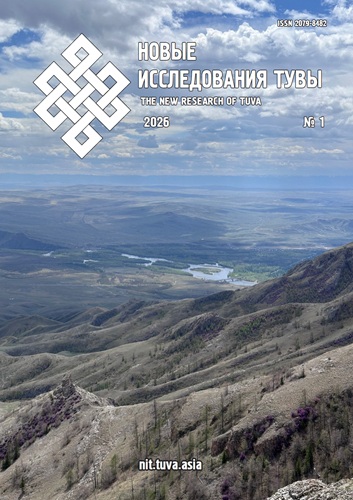
About the Journal
The New Research of Tuva (Novye issledovaniia Tuvy) is peer-reviewed open-access online journal. Our focus is on comprehensive studies of Tuva – an interdisciplinary field of research in humanities and social sciences which covers the history and culture of the Republic of Tuva and the peoples that have created its unique sociocultural context.
Publisher is Ch. K. Lamazhaa (Postal box 30, Moscow, Russia, 117437); co-publisher - Al-Farabi Kazakh National University (71 Al-Farabi Ave., Almaty, Republic of Kazakhstan, 050040).
Editor-in-chief is Ch. K. Lamazhaa, Doctor of Philosophy.
The New Research of Tuva welcomes contributions in Russian and English.
The journal is published quarterly. ISSN 2079-8482.
Indexing and archiving: RINTs, CiberLeninka, PKP Index, ERIH PLUS, Google Scholar, DOAJ, Scopus, ESCI Web of Science Core Collection, EuroPub.
The journal is included in the databases Ulrich's Periodicals Directory, ROAD.
Since 2017 CrossRef agency assigns DOI to journal articles (doi.org/10.25178/nit).
Current Issue

Special theme «Mountain Studies». Guest editors: Chimiza K. Lamazhaa, Doctor of Philosophy, Al-Farabi Kazakh National University, Kazakhstan; Zukhra A. Kuchukova, Doctor of Philology, Kabardino-Balkarian State University named after Kh. M. Berbekova, Russia.



